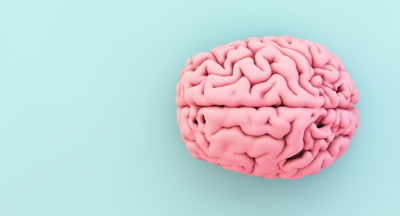
Embracing Neurodiversity: Autism Awareness Month and Breakthrough Treatments
Embracing Neurodiversity: Autism Awareness Month and Breakthrough Treatments
April marks Autism Awareness Month, a time dedicated to increasing the understanding and acceptance of people with autism spectrum disorder (ASD). This month serves as an opportunity to celebrate neurodiversity while also addressing the challenges faced by neurodivergent individuals and their families.
The History of Autism Awareness Month
Autism Awareness Month began in April 1970, when the Autism Society launched a nationwide campaign to promote awareness about autism. What started as a small movement has now grown into a global initiative. In 2007, the United Nations designated April 2nd as World Autism Awareness Day, further broadening the reach of this important observance.
Over the years, the focus has evolved from mere awareness to acceptance and appreciation of neurodiversity. Many advocates now prefer the term “Autism Acceptance Month,” emphasizing the need not just to recognize autism, but to fully embrace and support autistic individuals.
Understanding Autism Spectrum Disorder
Autism spectrum disorder is a complex developmental condition that affects communication, social interaction, and behavior in varying degrees. As the name suggests, autism exists on a spectrum, with each person experiencing a unique combination of strengths and challenges.
Common Challenges Associated with Autism
Individuals with autism often face several challenges in their daily lives, such as:
Social Communication Difficulties Many people with autism find it challenging to understand social cues, maintain conversations, or interpret non-verbal communication. This can be particularly difficult when forming relationships and navigating social situations.
Sensory Processing Issues Sensory sensitivities are common in autism. An autistic person might be overwhelmed by lights, sounds, or textures that others barely notice, leading to discomfort or anxiety in everyday environments.
Routine and Predictability Needs Many individuals with autism thrive on routine and predictability. Unexpected changes can cause significant distress and anxiety.
Executive Functioning Challenges Tasks involving planning, organizing, and shifting attention may be particularly challenging, in turn affecting school, work, or independent living.
Co-occurring Conditions Anxiety, ADHD, sleep disorders, and other conditions frequently co-occur with autism, adding layers of complexity to diagnosis and treatment.
Moving Forward with Awareness and Support
Autism Awareness Month reminds us of the importance of understanding, acceptance, and appropriate support for individuals with autism. While challenges exist, therapeutic approaches such as neurofeedback offer promising pathways for addressing some aspects of autism.
If you or a loved one is navigating life with autism and interested in exploring neurofeedback as a treatment option, reaching out to experienced providers like Cognitive Solutions LC can be a valuable step. Our decades of experience in the field make us a trusted resource for families seeking evidence-informed approaches to autism support.
By combining greater awareness with effective treatments, we can work toward a world that not only understands autism but embraces and supports autistic individuals in living their fullest lives.
Related Posts
The Importance of IEP and 504 Plans in Special Education
Individualized Education Plans (IEPs) and 504 Plans are legal documents that are...
Attention Deficit Disorder ADD and ADHD Treatment in Chicago: Neurofeedback and Executive Functioning Training
By Ari Goldstein, Ph.D. Most psychologists and doctors in Chicago have limited...
Summer Break Brain Boost: Why Neurofeedback and Executive Functioning Support Matter
As the school year winds down and summer break approaches, parents and students...
Exploring the Differences Between Neuropsychological Testing vs. Quantitative Electroencephalogram (qEEG) Testing
Joy Malanyaon began experiencing severe headaches beginning December 2016....





